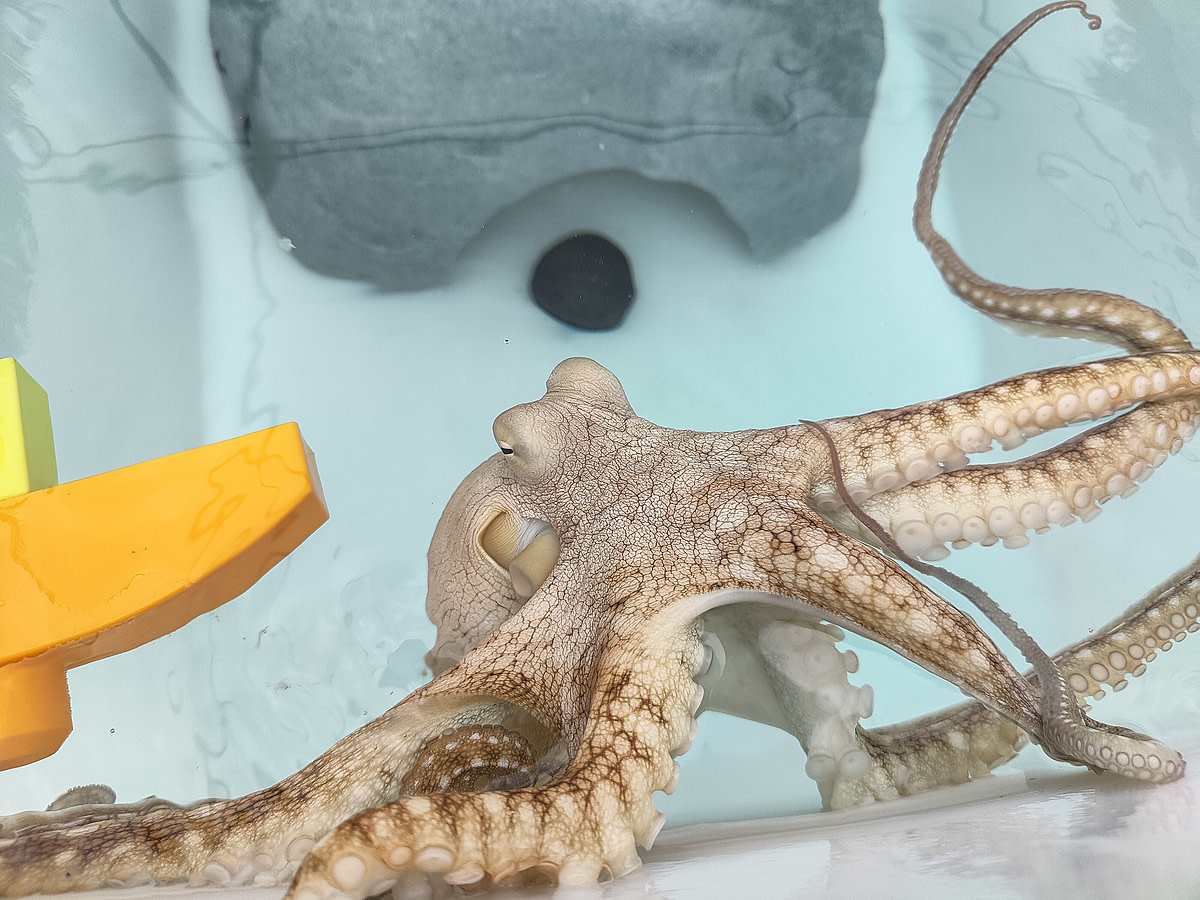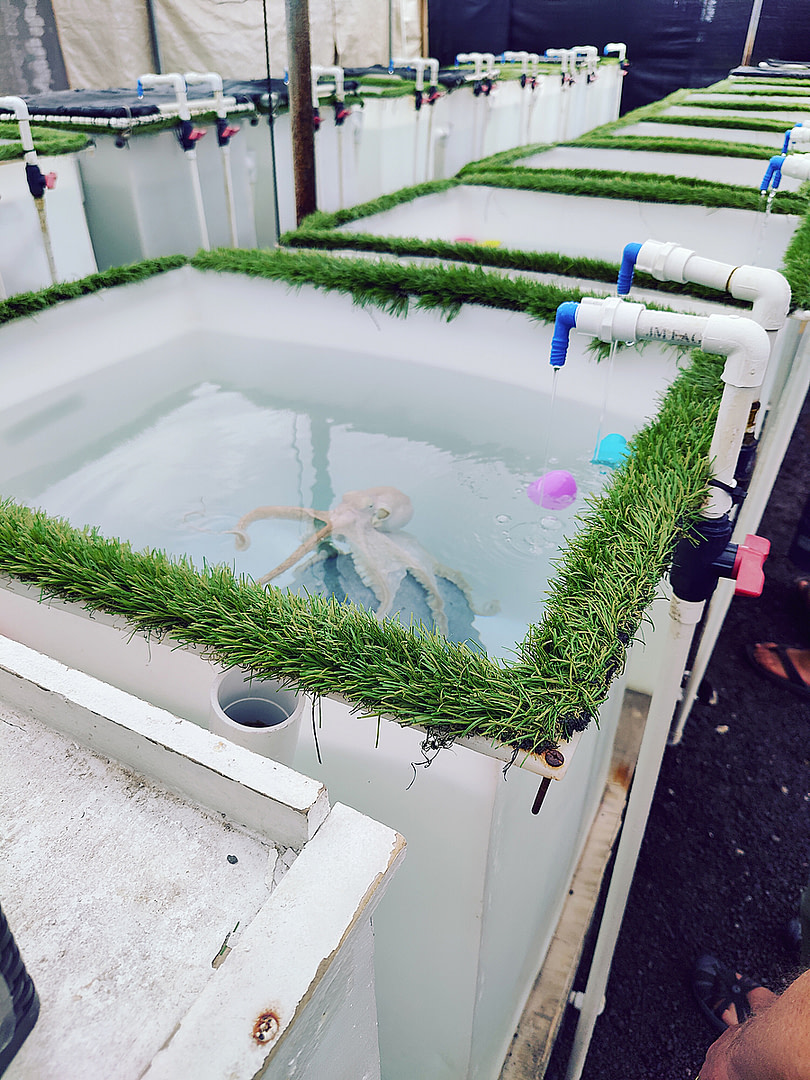Octopus Farm Closes Following Investigation
Kanaloa Octopus Farm on the Big Island of Hawaii has now permanently closed after the state decided not to renew the facility’s lease. This huge victory comes after months of pressure from animal advocates, media exposure and legal complaints in the wake of The Every Animal Project’s investigation, which exposed the supposed small-scale conservation research facility as a highly popular petting zoo that used tourist dollars to expand its octopus farming facility.
“This victory directly affects the hundreds of octopuses who were captured and subjected to breeding experiments every year, countless bobtail squids who were allegedly being bred and sold at the facility, and hermit crabs and other small invertebrates being tested for suitability as feed for young octopuses. Moreover, it spares potentially thousands or even millions of Hawaiian day octopus lives, had the facility’s research led to the creation of a factory farming industry for this species.” – Laura Lee Cascada, Founder of The Every Animal Project
In 2022, The Every Animal Project Founder Laura Lee Cascada visited Kanaloa Octopus Farm to investigate the facility’s captive breeding program using Hawaiian day octopuses. The facility and its tour guides claimed to be researching octopus breeding for conservation purposes and sold tour tickets to fund this work. Laura’s investigation documented wild-caught Hawaiian day octopuses confined in small, barren tanks with just a small cave to hide in and a toy or two for enrichment.
A comprehensive report from Compassion in World Farming sets out the main reasons why octopus farming should not be permitted, highlighting the serious environmental and animal welfare problems associated with it.
“Factory farming practices restrict animals’ natural behaviours and lead to untold suffering, regardless of species. Octopuses’ exceptional characteristics make them uniquely unsuitable for intensive farming.”– Compassion In World Farming
The outcome of this recent investigation at Kanaloa Octopus Farm marks an important milestone in the local and state-level efforts taking place around the rise of octopus farming, placing advocates one step forward in their efforts to raise awareness of cephalopod sentience and welfare.
Explore more visuals from this investigation via our stock platform, which offers 20,000+ free images and videos of animal issues around the globe.
More like this from We Animals Media:
100 Photographers Bringing You Animal Stories
by We Animals Media | Jul 18, 2023
Raising Animal Issues to EU Parliament
by We Animals Media | Apr 26, 2023
From Source to Sale: Shrimp Farming and Fishing in India
by We Animals Media | Feb 2, 2023








